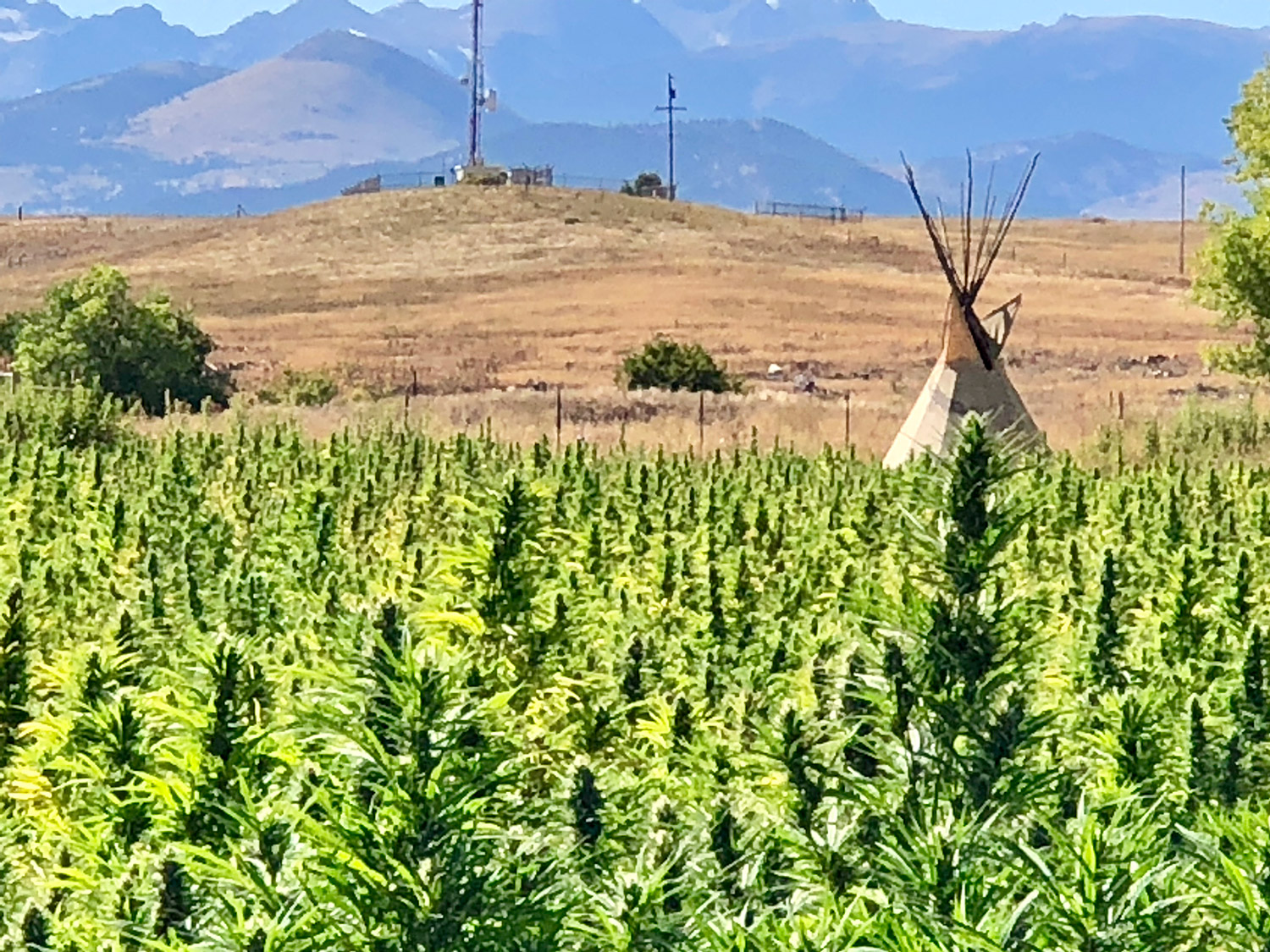Hemp Producers Face Harvest Challenges; Seek Creative Ways to Profit in 2019
By Steven Hoffman
States and farmers throughout the U.S. are celebrating the nation’s first legal hemp harvest in more than 80 years, and this year’s harvest is estimated by Vote Hemp to come in at 115,000 – 138,000 acres, up 50% over 2018 hemp harvest levels. However, many first-time and even more experienced growers faced a number of adverse conditions and/or they went through a steep learning curve this growing season, resulting in significant crop and monetary losses for some producers and processors.
In addition, among the hemp industry’s growing pains for many new producers has been finding an end market for harvested product. Federal legalization of industrial hemp as a result of the 2018 Farm Bill brought on a “green rush” of new farmers across the country. With so much product on the market and jitters around possible links between CBD and a recent rash of vaping injuries and fatalities, a good portion of the nation’s 2019 hemp harvest could end up in storage.
“There’s a lot of excitement about the new [hemp] crop in New Mexico,” the state’s Secretary of Agriculture Jeff Witte told the Albuquerque Journal. Witte noted that more farmers joined the state’s hemp program this past year than the Department of Agriculture anticipated. It’s also a learning year for hemp producers, with plenty of trial and error as growers attempted to find the right approach to growing in New Mexico’s sometimes unforgiving conditions, Duke Rodriguez, President and CEO of Ultra Health, New Mexico’s largest medical marijuana producer and parent company of Ultra Hemp, told the Albuquerque Journal. Rodriguez said he expects only a third of the hemp grown this year to be successfully harvested. “Even for our own grow, we had what I would consider mixed results,” he said.
For hemp farmers in the Midwest, torrential spring rains damaged many crops, including hemp, or delayed planting. “The late planting date caused challenges because the plants didn’t get as tall, they never canopied and that created weed problems,” farmer Mark Boyer told WFYI News in Indianapolis, IN. However, many Midwestern farmers remain hopeful that hemp will provide farmers — many of whom have been struggling due to low commodity prices — the chance to diversify, and it could generate the next generation of farmers, Justin Swanson, an attorney and the Midwest Hemp Council’s co-founder, told WFYI News.
MA State Edibles Ban Chokes Off Lucrative Market for Farmers
In Massachusetts, seeds were already in the ground in June when state agricultural officials without warning banned the state’s hemp farmers and processors from making or selling practically any edible product infused with hemp-derived cannabidiol, or CBD. While claiming that the ban was a clarification of existing law, to the 104 licensed hemp farmers in the state, the ban cut off one of the most lucrative markets for their crops and disrupted farmers’ financial calculations for the 2019 growing season.
Now, the Boston Globe reported, farmers claim “the disaster they warned of all summer has arrived: tens of thousands of pounds of hemp harvested this fall and currently drying in barns across Massachusetts have nowhere to go, with edibles makers sidelined and other buyers offering extremely low prices to use the crop as biomass for fuel or feed. Lacking a financial incentive to process the plants into CBD and with state rules also banning exports and the sale of smokable hemp flower, growers are bracing for ruin,” the Globe reported. “Everybody is finishing the harvest, and none of us know what to do,’’ Linda Noel, a longtime farmer in Franklin, MA, told the Globe. Noel said she was offered $100 per pound for her artisanal hemp crop instead of the $500 she expected or the more than $900 per pound that premium, well-trimmed hemp might fetch in nearby Vermont, which has more liberal regulations, the Globe reported. “The state keeps changing the rules halfway through the game. It’s insulting,” she said.
Producers Facing Five Big Challenges in 2019
According to a recent report in Forbes, there are still too many uncertainties and challenges that the agricultural sect must face before hemp as a crop takes off in the way that advocates have long predicted. Forbes writer Mike Adams noted that the following are the most common problems hemp farmers have been dealing with since America’s latest cash crop was made legal.
- Poor first-year yields make it difficult for farmers to be profitable – Torrential spring rains in the nation’s heartland – which some call a “sweet spot” for growing hemp – delayed planting dates, stunted plants and affected yield for many first-time farmers.
- Growing hemp is more labor intensive than traditional crops – Growing hemp is a laborious affair, especially since many farmers do not presently have the proper equipment to efficiently see the process through from seed to harvest.
- Some of the hemp seed being sold for CBD-rich plants is of questionable quality – Farmers interested in producing plants to sell go CBD processors require all female plants. However, a Philadelphia Inquirer report indicates that for many growers male plants showing up in the crop have negatively affected harvesting of plants, rendering some crops “worthless.”
- Thieves are stealing hemp plants – With thieves often confusing hemp for its intoxicating cousin marijuana, growers are being forced to either invest in increased security or recruit watchmen to keep a constant lookout. Often the farmers themselves are losing sleep keeping watch at night over their hemp fields.
- Too much hemp is being produced with no new markets to which producers can sell – Now that the first harvest is considered mostly a wrap, many farmers are struggling to find a market where they can sell it. “It’s not like corn or wheat or other commodities, where you just go down to the local grain elevator,” Matt Cyrus, the president of the Deschutes County (Oregon) Farm Bureau, toldthe Philadelphia Inquirer.
Ways Farmers May Profit this Season
Ultimately, 2019’s growing pains will be a good thing for hemp producers. In New Mexico, for example, Duke Rodriguez noted that the learning process has helped growers identify strains and discover growing techniques that will allow hemp to thrive in New Mexico’s climate. In fact, Rodriguez told the Albuquerque Journal that, given the available land and direct sunlight, New Mexico could become a “major powerhouse” in hemp production. New Mexico Agriculture Secretary Witte and Rodriguez both agreed that it would be beneficial for New Mexico’s hemp industry to focus on adding value by processing and extracting oil from hemp going forward, through public or private investment.
For hemp producers throughout the U.S., from posting hemp for sale on PanXchange, a new online hemp trading platform or working with brokers, experts say that profit opportunities aren’t lost even for those who haven’t yet sold their hemp crops, “as long as cultivators are able to harvest and take steps to protect their hemp from dampness, mold and other potentially ruinous dangers,” Hemp Industry Daily reported.
Farmers who can’t sell their raw crops immediately or get them to an extractor should try to do as much preprocessing as possible to buy themselves some time, Joel Bedard, CEO of The Vermont Hemp Co. in Corinth, VT, suggested in Hemp Industry Daily. Preprocessed dry material can be stored in large white sacks or totes and plastic bins until farmers can find a buyer or an extractor for further processing, but even well-stored, dried material shouldn’t be kept beyond six months, Bedard said.
Farmers who can get their hemp to an extractor for processing should try to have it processed into winterized, decarboxylated crude oil, advised William Goodall, CEO of Denver-based Eco Extract Labs. “The sooner that you can extract it and get it into a concentrated oil and then sort in a barrel, preferably a cool location, the more you’ll get out of your plants,” Goodall told Hemp Industry Daily.
Ultimately, experts also advise to “network, network, network.” Some farmers have also found that posting photos and details of their crops on social media can help move material. Wesley Ray, Co-founder of Combined Hemp in Bend, OR, uses LinkedIn to promote his hemp farm. “Comments turn into (direct messages) and then eventually farm visits, Ray told Hemp Industry Daily.
In addition to the PanXchange, other online hemp trading platforms include The Hemp Marketplace, which began operation in 2017, and the Hemp Exchange, founded in 2019.
Photo: Compass Natural
 # # #
# # #
Steven Hoffman is Managing Director of Compass Natural, providing brand marketing, PR, social media, and strategic business development services to natural, organic, sustainable and hemp/CBD products businesses. Compass Natural serves in PR and programming for NoCo Hemp Expo and Southern Hemp Expo, and Hoffman serves as Editor of the weekly Let’s Talk Hemp Newsletter, published by We are for Better Alternatives. Contact steve@compassnaturalmarketing.com.




